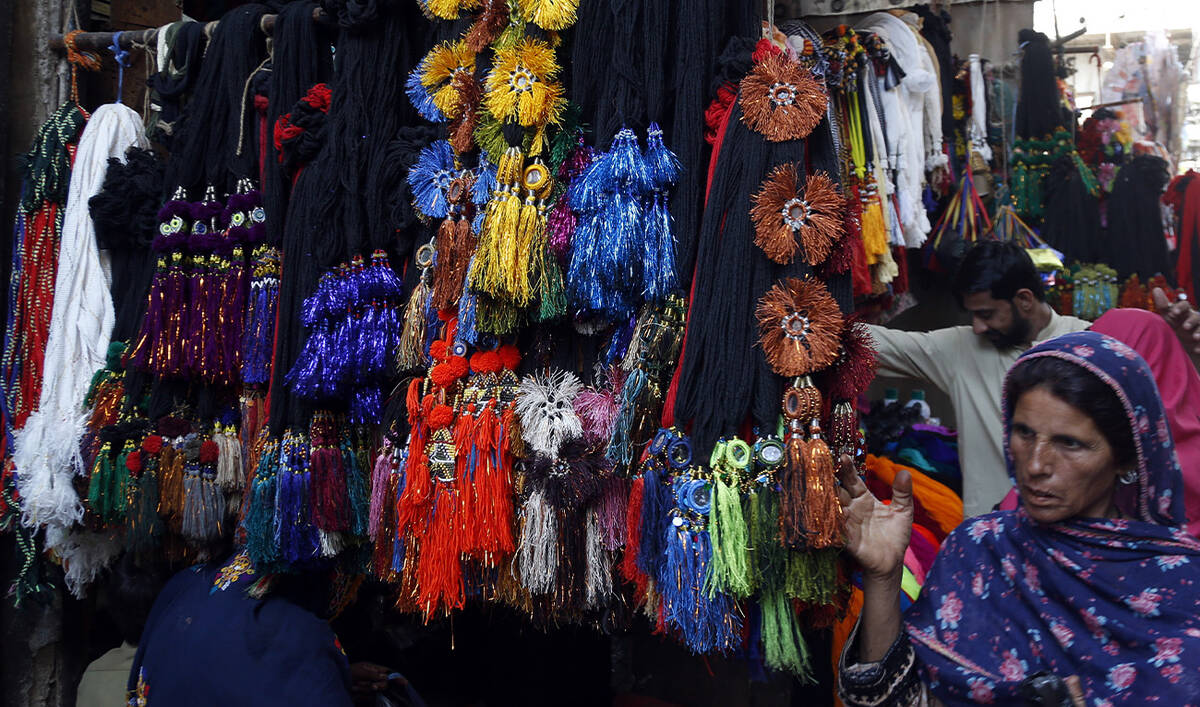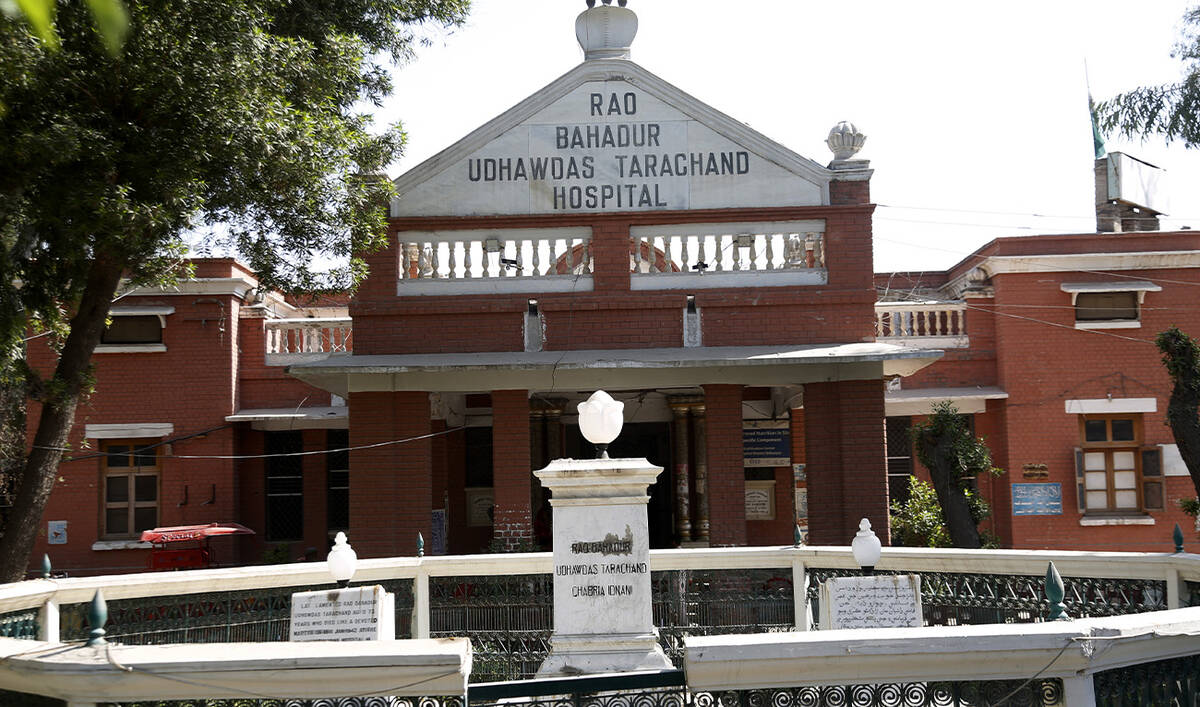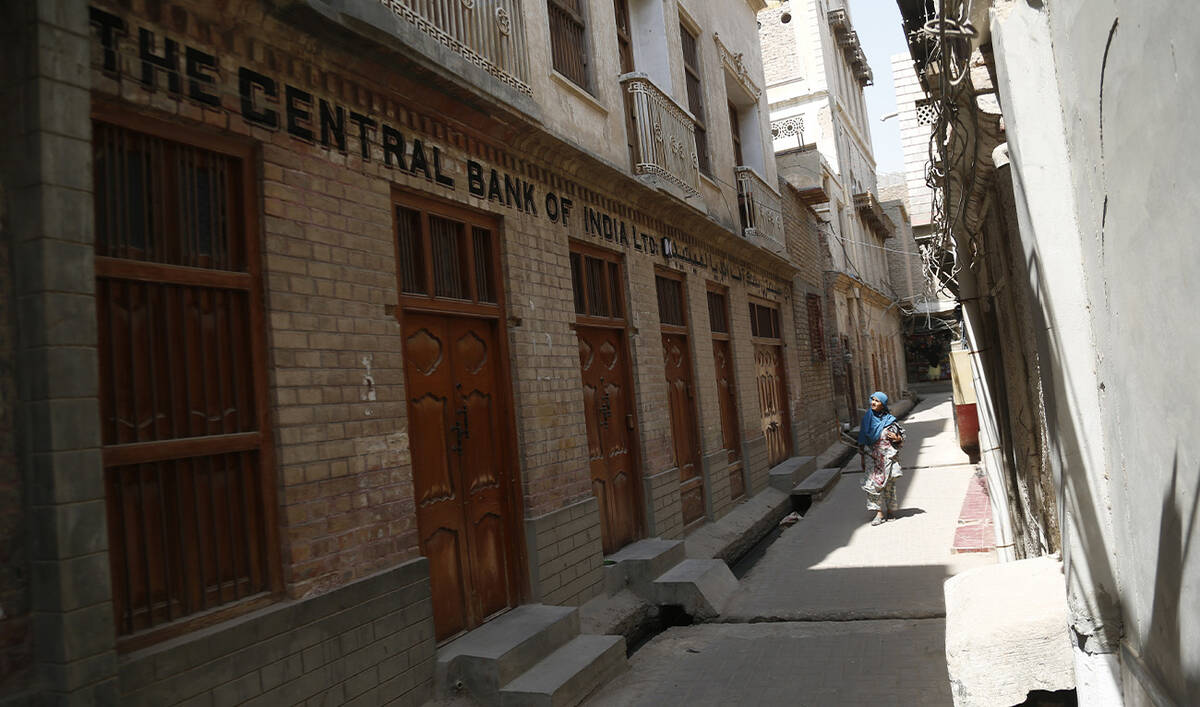ISLAMABAD: Pakistanis are paying more than £1.7 billion ($2.19 billion) in zakat annually, with the vast majority of recipients being women, according to a study released this week by researchers from the UK-based International Center for Tax and Development (ICTD) and Lahore University of Management Sciences.
Zakat is a form of obligatory almsgiving in Islam and one of its five central pillars. It requires Muslims who meet a certain wealth threshold to donate a fixed portion, usually 2.5 percent of their savings and assets annually, to those in need.
The findings of the study are based on a 2024 survey of 7,500 Sunni Pakistanis, shedding new light on the scale and social role of zakat, according to a post shared on the ICTD website.
“In a newly published factsheet, we estimate that self-identified Sunnis in Pakistan pay over 619 billion rupees (GBP 1.7 billion) in zakat annually,” the study’s authors wrote. “In 2024, the average zakat giver paid about 15,000 rupees (about GBP 43) with over 50 million Pakistanis contributing.”
“Our data suggests that every year, more money is distributed to people in need in Pakistan through zakat than through the largest state-led cash transfer program, the Benazir Income Support Programme,” they added.
Pakistan’s Benazir Income Support Programme (BISP) has a 2024/2025 budget of Rs598.7 billion ($2.16 billion), while zakat contributions, largely unregulated and directly disbursed by individuals, exceed that amount.
The federal excise duty and even official development aid received by Pakistan in recent years fall short of annual zakat totals, according to the study.
The research also reveals that Pakistan’s official zakat fund, established in the 1980s for compulsory collection and disbursed through state-appointed councils, plays a negligible role.
“Most Pakistanis prefer to bypass the state fund — unsurprising in a context where individuals have low trust in the government,” the authors said. “The national state fund collects only a fiftieth of what we estimate to be contributed annually, while survey respondents overwhelmingly noted that they prefer to manage their own zakat giving. In our survey, we find that less than 2 percent of zakat givers are going through the state fund.”
The study said most zakat is given directly to individuals, or via mosques, schools, and, to a lesser extent, NGOs, bypassing formal state channels.
More than half of the survey respondents reported giving zakat exclusively to female recipients, with a particular preference for widows, who were perceived as especially economically vulnerable.
The study highlights that private religious giving is filling critical welfare gaps in Pakistan, particularly for marginalized groups, in the absence of robust state social protection systems.
Pakistanis paying over $2 billion in zakat annually, women majority recipients — study
https://arab.news/c5mzy
Pakistanis paying over $2 billion in zakat annually, women majority recipients — study

- More money reaches people in need through zakat than via Pakistan’s Benazir Income Support Program
- Joint study by UK-based ICTD and Pakistan’s LUMS finds most people prefer to bypass the state zakat fund
Pakistan saw ‘sharp’ 22 percent decline in militant attacks in April, says think tank

- Pakistan’s security forces have been battling twin insurgencies in Khyber Pakhtunkhwa, Balochistan provinces
- April also marked the lowest monthly death toll among security forces since June 2024, says think tank’s report
KARACHI: Pakistan witnessed a sharp decline in militant attacks during April, an Islamabad-based think tank said in its report this week, saying that they dropped by a whopping 22 percent compared to the previous month, March.
The Pakistan Institute for Conflict and Security Studies (PICSS), an Islamabad-based think tank, said in its monthly report that both militant attacks and resultant casualties dropped sharply compared to March.
Pakistan’s security forces have been battling twin insurgencies in its northwestern Khyber Pakhtunkhwa (KP) and southwestern Balochistan provinces. In KP, the Pakistani Taliban frequently carry out some of the deadliest attacks against security forces while in Balochistan, Pakistani troops are battling ethnic Baloch separatists seeking independence from the state.
“The number of militant attacks fell by 22 percent— from 105 in March to 82 in April— while fatalities and injuries declined by 63 percent and 49 percent, respectively,” the PICSS said in its press release on Thursday.
The report said Pakistani security forces killed 203 militants in various operations throughout the month. Militants formed an overwhelming majority (73 percent) of the total fatalities in April, while only four casualties were reported. Of these, two were civilians and two were security personnel, it added.
“A total of 287 people were killed in April due to militant violence and security operations, down from 335 in March,” the think tank said.
The report said April also marked the lowest monthly death toll among security forces since June 2024, noting that civilian deaths also dropped significantly last month.
“PICSS attributed these improvements to proactive intelligence-led operations and enhanced border vigilance,” it said.
The report said the most “consequential development” of the month was a two-phase military operation near the Pakistan-Afghanistan border that targeted a large group of infiltrating Pakistani Taliban militants.
“At least 71 militants were killed— making it the biggest loss suffered by the group in a single operation to date,” the report said.
The think tank also noted the resurgence of attacks on local peace committee members in tribal districts who have historically resisted militant infiltrations.
“The resurgence of attacks on these volunteers, particularly in the tribal districts, suggests that groups like the TTP [Tehreek-e-Taliban Pakistan] are attempting to reassert dominance by silencing local resistance structures,” it said.
The report said mainland KP recorded 37 militant attacks in April, marginally down from 42 in March while tribal districts reported 17 attacks last month, slightly down from 18 in March. Balochistan witnessed 21 militant attacks in April, compared to 35 in March while Punjab reported three and Sindh four attacks in April.
It said Pakistan’s capital Islamabad remained peaceful in April, with no militant attacks reported for the second consecutive month.
Pakistan army chief vows ‘swift, resolute’ response to any military action by India

- General Syed Asim Munir witnesses Pakistan army’s high-intensity field training exercise drill near Jhelum
- Tensions surged after India blamed Pakistan for Apr. 22 attack on tourist resort in Indian-administered Kashmir
ISLAMABAD: Pakistan Army Chief General Syed Asim Munir on Thursday vowed that any military misadventure by India would be met with a “swift, resolute” response amid surging tensions between the nuclear-armed neighbors.
These remarks came from Munir while he visited the Tilla Field Firing Ranges (TFFR) near the eastern city of Jhelum to witness “Exercise Hammer Strike,” a high-intensity field training exercise conducted by Pakistan Army’s Mangla Strike Corps. The army continued to hold war exercises on Thursday in a bid to demonstrate its military might to its neighbor.
Pakistan has vowed to give a befitting and “strong” response to any military action by India as tensions surged after New Delhi blamed Islamabad for being involved in an attack on Indian-administered Kashmir on Apr. 22.
Islamabad has denied involvement in the attack, which killed 26 people and prompted both countries to take several hostile measures against each other. These included India suspending a decades-old water-sharing treaty, suspending visas for Pakistani nationals and declaring its military advisers “persona non grata.” Pakistan responded with tit-for-tat measures.
“Let there be no ambiguity: any military misadventure by India will be met with a swift, resolute, and notch-up response,” Munir was quoted as saying by Pakistan military’s media wing. “While Pakistan remains committed to regional peace, our preparedness and resolve to safeguard national interests is absolute.”

Munir lauded the high morale, combat proficiency and warfighting spirit of Pakistan’s officers and troops at the firing ranges, terming them the “embodiment of Pakistan Army’s operational excellence.”
The military said that the exercise was designed to validate combat readiness, battlefield synergy and operational integration of cutting-edge weapon systems under near-battlefield conditions.
“A diverse array of advanced capabilities, including multirole fighter aircraft, combat aviation assets, long-range precision artillery and next-generation field engineering techniques were employed to simulate conventional battlefield scenarios,” it said.
RUBIO CALLS FOR DE-ESCALATION
Separately, US Secretary of State spoke to Prime Minister Shehbaz Sharif on Wednesday to discuss the regional situation. As per the US State Department, Rubio urged Islamabad to cooperate in the attack’s investigation and de-escalate the situation.
“The Secretary urged Pakistani officials’ cooperation in investigating this unconscionable attack,” the State Department said. “He also encouraged Pakistan to work with India to de-escalate tensions, re-establish direct communications, and maintain peace and security in South Asia.”
According to Sharif’s office, the Pakistani premier asked Washington to impress upon India to “act responsibly” and “dial down the rhetoric.”
“He [Sharif] categorically rejected Indian attempts to link Pakistan to the incident and pointed to his call for a transparent, credible, and neutral investigation to bring out the facts,” the PMO said.
Rubio also spoke to India’s External Affairs Minister Subrahmanyam Jaishankar on Wednesday, expressing sorrow for the loss of lives in the Apr. 22 attack. He also encouraged India to work with Pakistan to de-escalate tensions and maintain peace and security in South Asia, the State Department said.
India poses serious threats to regional peace, Pakistan tells OIC envoys

- Tensions surged after India blamed Pakistan for deadly attack on tourists in Indian-administered Kashmir on Apr. 22
- Several countries such as US, UK, Iran, China, Saudi Arabia, UAE and others have called on both sides to show restraint
ISLAMABAD: Pakistan’s Permanent Representative to the United Nations (UN) Ambassador Asim Iftikhar briefed the Organization of Islamic Cooperation (OIC) Group of Ambassadors about Islamabad’s ongoing tensions with New Delhi on Thursday, state-run media reported, informing them that New Delhi poses serious threats to regional peace and security.
Tensions have surged between the two countries following a deadly attack on tourists in Indian-administered Kashmir on Apr. 22 that New Delhi has said Pakistan was involved in. Islamabad denies the charges and has said it will participate in any credible and transparent investigation of the assault.
Several countries such as China, Saudi Arabia, Iran, UK, US and others have called upon both India and Pakistan to exercise restraint and avoid a military confrontation. Pakistan has vowed to give a “strong” response to any aggression after Indian Prime Minister Narendra Modi gave the military freedom to respond to the Kashmir attack during a closed-door meeting earlier this week.
“He informed the participants that India, through its politically motivated, irresponsible and highly provocative behavior, has posed serious threats to regional peace and stability,” Radio Pakistan said on Thursday.
The state-run media said OIC members expressed full support and solidarity with Pakistan, calling for “de-escalation through diplomatic engagement” and urging the resolution of the Kashmir dispute in accordance with UN Security Council and OIC resolutions.
India and Pakistan both claim the entire disputed Kashmir region but administer only parts of it. New Delhi accuses Islamabad of funding militants in the valley which Islamabad denies.
On Wednesday, Prime Minister Shehbaz Sharif urged US Secretary of State Marco Rubio during a phone call to impress upon New Delhi to “act responsibly” amid fears of a military confrontation breaking out between nuclear-armed neighbors.
Pakistani state media had also reported that a “timely” response by the Pakistan Air Force on Wednesday had “forced” four Indian Rafale jets to retreat after payrolling near the two nations’ de facto border.
‘Treasure of history’: Shikarpur’s fading grandeur tells a story of loss

- Located in southern Sindh, Shikarpur city was once a major regional trade hub
- The 1947 migration of Hindus left the city’s architectural legacy neglected
SHIKARPUR, Sindh: Once dubbed the “Paris of Sindh” for its perfumed gardens and vibrant markets, the historic city of Shikarpur in Pakistan’s southeastern region now stands as a shadow of its former self — its havelis weathered, its bazaars dimmed and its legacy slipping into silence.
Founded in 1617, the city was once home to grand mosques, ornate Hindu temples and covered markets. These structures continue to stand as a tribute to Shikarpur’s bygone era, marked by extraordinary economic supremacy and cultural diversity.
The city rose to prominence during the eighteenth and nineteenth centuries as a powerful trade hub linking South and Central Asia. Its merchants dealt in precious stones, textiles and other high-value goods, extending their influence to markets in Kabul, Bukhara, Samarkand and beyond.
“It’s like a treasure of history. It’s like a treasure of heritage sites,” said Professor Anila Naeem, whose 2017 book, Urban Traditions and Historic Environments in Sindh: A Fading Legacy of Shikarpur, extensively documents the city’s historic fabric.
“For me the woodwork is the most fascinating,” she added. “Woodwork, which is not just plain and simple woodwork, but it has iconography in it which reflects the religious inclinations, the political inclinations ... those buildings speak of the history of that city, which was definitely very, very rich.”

Rajpal Rewachand, a businessman and lawyer in the city, maintained the role of Hindu settlers was pivotal in the city’s development, noting that their arrival along trade paths spurred commercial expansion and the construction of many still-standing heritage structures.
“The city’s development happened when Hindu settlers arrived,” he said while standing within the historic Pooj Udasin Samadha Ashram, a once-thriving religious and community complex.
“Before them, the majority of the residents were either Punjabis or people who had migrated from Tashkent, Samarkand and Bukhara.”
The city’s signature Dhak Bazaar, a covered market said to be one of the oldest of its kind in South Asia, and landmarks like the Shahi Bagh, Clock Tower and Tara Chand Hospital were once considered marvels of civic infrastructure.
At the height of its economic might, Shikarpur operated both formal and informal financial systems. The informal banking system was so reliable, according to locals, it made traveling with cash unnecessary.
“If someone had to travel to any corner of the world, they wouldn’t carry money with them,” said Nazeer Ahmed Qureshi, a cloth merchant in Dhak Bazaar, adding a stamped note by a local merchant would get him money.

“No matter where in the world one traveled, Shikarpur’s money was recognized,” he added.
But the city that was once surrounded by lush gardens and fruit groves is now clearly in decline.
According to Mehdi Shah, a local researcher and author, Shikarpur went into a downward spiral after the Hindu trading families were uprooted during the 1947 Partition.
“After the Partition of India, the Hindu population migrated, and their architectural legacy was not maintained as it once was,” he said.
As the city’s ownership shifted and wealth drained away, its buildings were left to deteriorate. Those who moved into the once-grand havelis lacked the means to preserve them, accelerating the decline.

“The shift in ownership, coupled with the activities of antique dealers, has placed these architectural treasures at increased risk,” Shah added.
The decay is not just physical but institutional. Despite a 1998 notification declaring the entire city a heritage site under the Sindh Cultural Heritage Protection Act — and a 2013 effort to designate 1,203 properties as protected — most of Shikarpur’s historic buildings have been left to deteriorate.
Professor Naeem said that restoration could help revive both the city’s cultural pride and economic fortunes, particularly if Pakistan invests in heritage tourism.
Sitting amid the fading relics in the heart of Dhak Bazaar, cloth merchant Qureshi reflects on the distance between memory and present reality.
“Such a beautiful past— such a grand historical city, a magnificent city with its rich culture, trade, lifestyle,” he said, his voice echoing through the narrow, shop-lined passage. “It feels like a dream, as if stepping into another world.”
3 Pakistani security personnel killed in raid on a militant hideout

- Pakistan police say insurgents were “Khawarij,” a term government uses for Pakistani Taliban
- Last week Pakistani forces killed 71 militants attempting to enter through Afghanistan, says military
PESHAWAR: Pakistani security forces overnight raided a militant hideout in northwest Pakistan, sparking a shootout in which three officers and one suspect were killed, police said Thursday.
The raid occurred in Bannu, a district in the Khyber Pakhtunkhwa province, police Arshad Khan said. Other insurgents fled the scene. Khan said the insurgents were “Khwarij” — a phrase the government uses for the Pakistani Taliban.
The Pakistani Taliban, known as Tehreek-e-Taliban Pakistan, have launched some of the deadliest attacks against Pakistani law enforcers and civilians since 2007.
Last week, Pakistani security forces killed 71 militants when they attempted to cross into the country from Afghanistan, according to the military.











